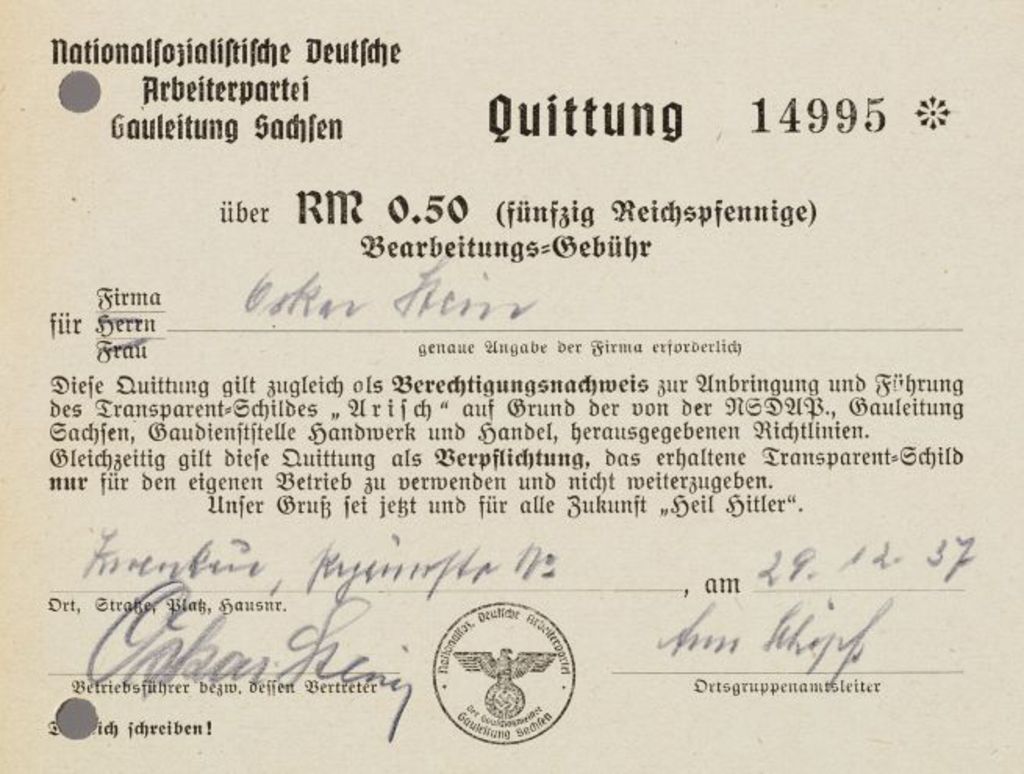Source

Source: Payment receipt, December 29, 1937. Deutsches Historisches Museum, Berlin. Inv. Nr. Do2 2000/1152
While the Nazi state enacted policies that excluded Jews from society and the economy, many non-Jewish Germans also took it upon themselves to support and engage in the process. Many business owners, for example, demonstrated their so-called “Aryan heritage” by purchasing official signs that informed patrons that their company was “Aryan-owned.” There was no legal requirement to display such signs. Therefore, owners who purchased these signs did so of their own volition and on their own initiative. Shown here is an official receipt, which offered proof of payment for one such sign and authorized its owner to display it in his establishment. Obtaining such a sign required evidence of one’s racial heritage and an application to the local party office. The signs attracted customers looking to purchase “German goods” from “German retailers” and presumably also deterred the scrutiny of the SA or SS. The presence of such signs also focussed attention on those stores that lacked signs, possibly on account of a Jewish, or politically non-conforming owner. By the time this receipt was issued—December 29, 1937—a large proportion of retail businesses had already been “Aryanized,” and sold far below market value to “Aryan” owners. Together with the pogrom known as Kristallnacht the following year, Aryanization was one of the final acts that forced Jews out of the German economy.

Source: Payment receipt, December 29, 1937. Deutsches Historisches Museum, Berlin. Inv. Nr. Do2 2000/1152
Deutsches Historisches Museum